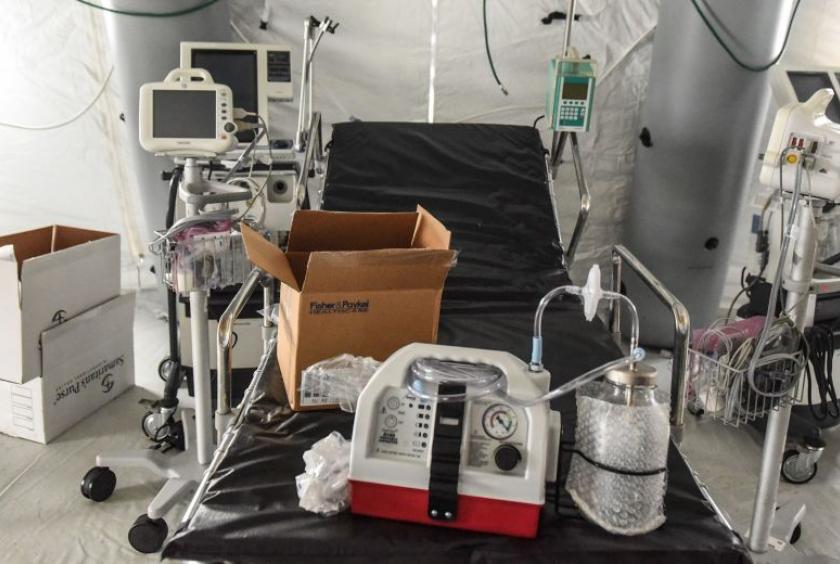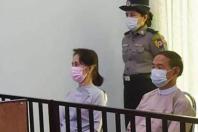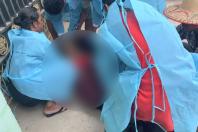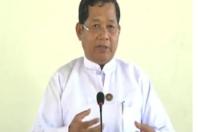
WASHINGTON (NYTIMES) - US President Donald Trump has repeatedly assured Americans that the federal government is holding 10,000 ventilators in reserve to ship to the hardest-hit hospitals around the nation as they struggle to keep the most critically ill patients alive.
But what federal officials have neglected to mention is that an additional 2,109 lifesaving devices are unavailable after the contract to maintain the government's stockpile lapsed late last summer, and a contracting dispute meant that a new firm did not begin its work until late January. By then, the coronavirus crisis was already underway.
The revelation came in response to inquiries to the Department of Health and Human Services after state officials reported that some of the ventilators they received were not operational, stoking speculation that the administration had not kept up with the task of maintaining the stockpile.
In fact, the contract with a company that was maintaining the machines expired at the end of last summer, and a contract protest delayed handing the job to Agiliti, a Minneapolis-based provider of medical equipment services and maintenance. Agiliti was not given the US$38 million (S$54.59 million) task until late January, when the scope of the global coronavirus crisis was first becoming clear.
It is not known whether problems with the ventilators predated the contract lapse, but maintenance of the machines did halt. That delay may become a potentially deadly lapse.
"We were given a stop-work order before we'd even started," said Mr Tom Leonard, the chief executive of Agiliti, which had won the contract to service the ventilators in the stockpile. "Between the time of the original and the time of this contract award, I don't know who was responsible or if anybody was responsible for those devices. But it was not us."
Mr Leonard said confidentiality agreements with the government over the stockpile prohibited him from giving specific figures on the number of ventilators the company was now working on.
"We still have that first tranche of ventilators, although we're accelerating the work to get them deployable," Mr Leonard said. "We haven't seen or touched or had anything to do with the ones that have already been deployed to date."
Ventilators are sensitive machinery that Mr Trump described on Sunday (March 29) as so complex they were like "building a car." But, experts say, like a car, they cannot be stored for lengthy periods without maintenance. So few are surprised that as the nation's hospitals scramble to pull together every usable ventilator they can find, some have come out of storage with depleted batteries, missing oxygen hoses and other issues.
California recently discovered that 170 of its ventilators arrived broken, disputing the claim from the Department of Health and Human Services that all of the ventilators shipped by the Federal Emergency Management Agency (Fema) were ready to use. The agency said in a statement that problems with some ventilators were limited to the devices' external batteries, and that federal officials were quick to assist the states with any technical issues.
Federal officials revealed on Wednesday that their stockpile of medical gear was nearly depleted. Fema has shipped 26 million surgical masks, 11.6 million respirator masks and more than 5 million face shields to states, setting off a race to obtain millions of recently produced masks from a variety of manufacturers at a moment of huge price spikes for respirators that previously sold for about US$0.85 (S$1.22).
The bigger struggle, however, has focused on ventilators because states have asked for tens of thousands more than the approximately 9,400 that the US government currently has in its stockpile. The Department of Defence is also making 1,065 ventilators available, although those require special training and are not used as frequently in hospitals.
Mr Aric Vacchiano, the vice-president of US sales and services at Vyaire Medical in Chicago, which produces the LTV 1200, one of the ventilators in the federal stockpile, said the company had been fielding calls from all over the country as hospital officials rushed to get the machines in working order.
"They're reaching out in every direction," Mr Vacchiano said.
As of Wednesday morning, Fema had sent about 7,000 ventilators to a number of states, with 4,000 directed to New York. Mr Trump said he wanted to hold the current stockpile in reserve until it was clear where new hot spots would emerge.
Even with the federal help, states are scrambling for their own ventilators. They have flooded the few manufacturers in the country with orders, only to discover that the machines are largely made abroad, in China, Ireland, Switzerland and elsewhere.
"We're very short," governor Ned Lamont of Connecticut said on CNN on Monday. "We had our ventilators all set to come, and at the last moment Fema redirected them," he said, to "another place that they considered more urgent than Connecticut."









